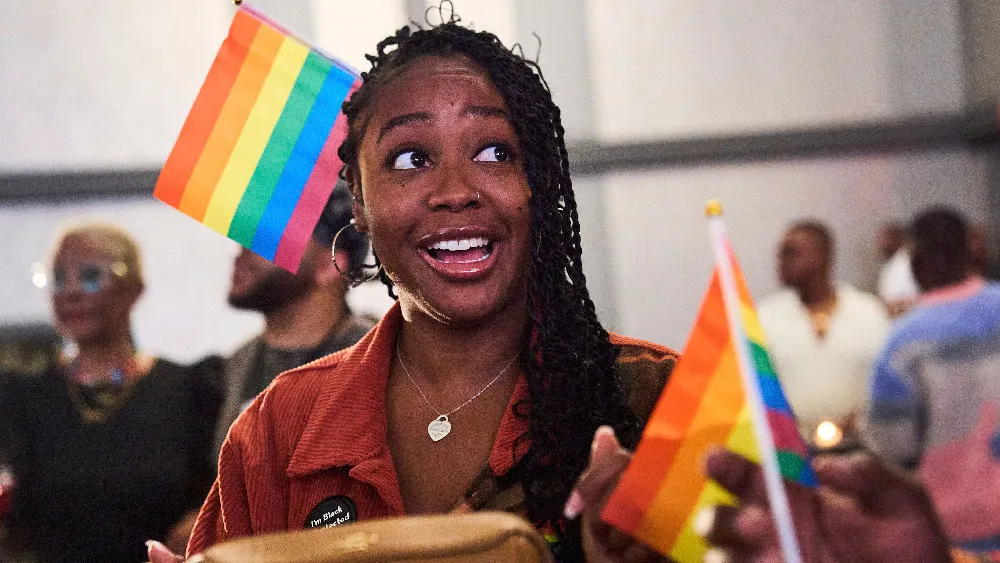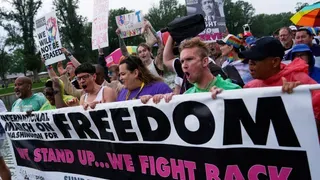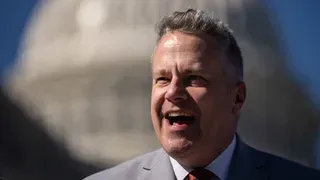August 15, 2010
SF marks 20th anniversary of Ryan White CARE Act
Kevin Mark Kline READ TIME: 3 MIN.
When Steve Manley was diagnosed with HIV in 1988, his doctor told him he had two years to live.
Manley, 59, said his health has been "a major roller coaster ride," but now is "better than it's been in a long time."
Over the past two decades, there have been times when Manley, now consumer co-chair of the San Francisco HIV Health Services Planning Council, has relied "completely" on services funded by the Ryan White HIV/AIDS Treatment Modernization Act. The legislation is formerly known as the Ryan White CARE Act.
In San Francisco, the legislation's 20th anniversary will be commemorated Wednesday, August 18 from noon to 1 p.m. on the Polk Street steps of City Hall.
The legislation was named after Ryan White, a 13-year-old Indiana boy who was diagnosed with AIDS in 1984. Ryan, who had contracted the disease from a blood transfusion, became the center of a court battle and national crusade to remain in school. He died in April 1990 at the age of 18.
Randy Allgaier, who is also living with AIDS, is the director of the planning council, which is mandated by the Ryan White legislation. The council, one of many across the country, prioritizes and allocates resources that come from Ryan White funding.
Allgaier said that over the last 20 years, the legislation has led to over half a billion dollars in funding for the San Francisco area.
For the 2010-11 fiscal year, the San Francisco area is set to receive a total of about $29.4 million in funding through Ryan White, according to Bill Blum, interim director of HIV health services for San Francisco's health department.
The majority of that is funded to the San Francisco Eligible Metropolitan Area, which also includes San Mateo and Marin counties. Most of the money - about $26.5 million - goes to San Francisco.
Funding for the area has dropped over the last 10 years, however. In the 2000-01 fiscal year, San Francisco had an award of about $38 million through what's now known as Part A. Part A money comes directly to the metro area. Part B money is passed through the state.
This year, according to Blum, the Part A funding is $25,305,146, plus more than $704,000 for the Minority AIDS Initiative. The Part A money includes approximately $5 million in "stop loss funds," which are an additional appropriation from Congress.
He said that without those funds, the Part A money would be about 44 percent less than it was 10 years ago.
Decreased funding has come even as the number of people in San Francisco living with AIDS has increased. According to data from the health department's 2008 HIV/AIDS Epidemiology annual report, there were 4,336 people living with AIDS in 1990. In 2008, that number was 9,248.
Vital help
In the mid-1990s, Manley was diagnosed with AIDS. He said he's been disabled since 1995.
"There was a period of time I was housebound and in a wheelchair and was unable to do virtually almost anything for myself," said Manley.
That included not being able to cook, and Project Open Hand, which provides home-delivered meals and other services, brought food to him.
Tom Nolan, Project Open Hand's executive director, said Ryan White funding has been "vital in so many ways, and it continues to be."
The organization receives about $1 million a year from the program, which represents food for about 500,000 meals each year, said Nolan.
Manley still receives support through the AIDS Drug Assistance Program, which helps people with AIDS get access to medications.
Drew Hammill, spokesman for House Speaker Nancy Pelosi (D-San Francisco) said in an e-mail that over the past three years, Pelosi, whom many credit for her support of people living with HIV/AIDS and who has pushed for reauthorization of the act over the years, has restored nearly $17 million in previous cuts to San Francisco's Ryan White funding that came from the Bush administration's "flawed implementation" of the 2006 reauthorization.
He added that for next fiscal year, the House of Representatives' Labor-Health and Human Services-Education Appropriations Subcommittee has approved an additional $113 million increase for HIV/AIDS funding, including an $84 million raise in Ryan White funding.
For more information about the Ryan White event, go to http://www.facebook.com and search for "Commemoration of the 20th Anniversary of the Ryan White CARE Act."







